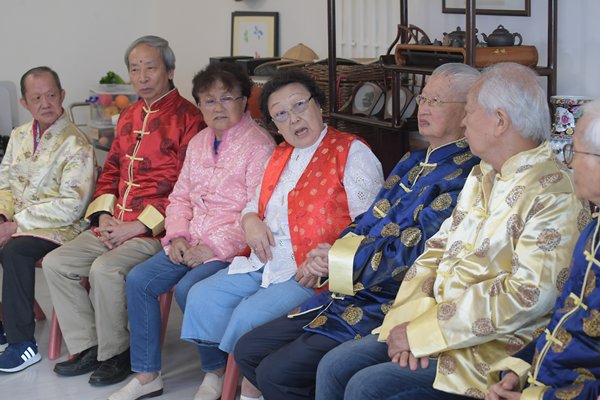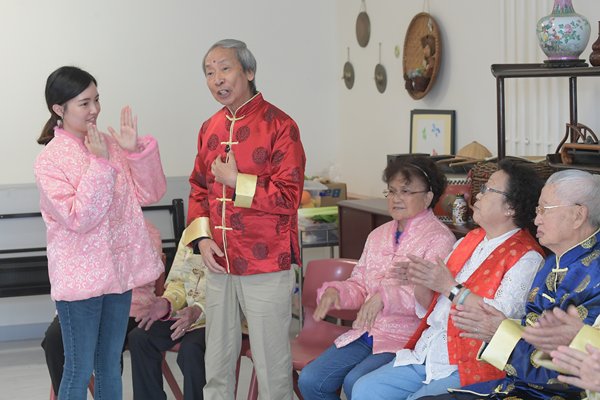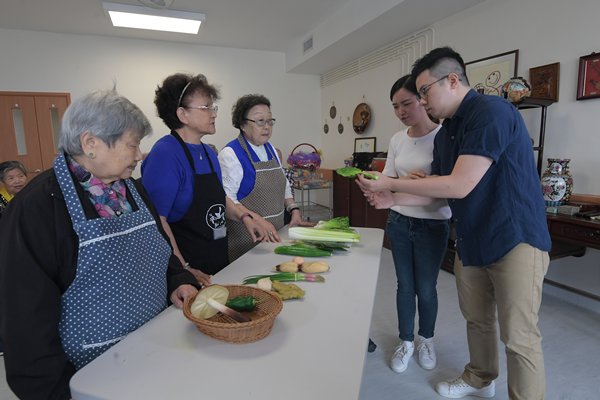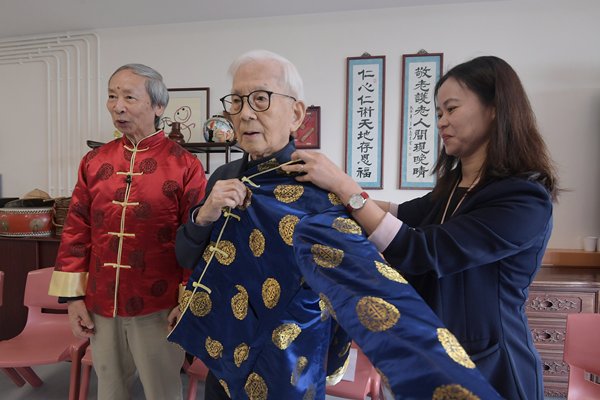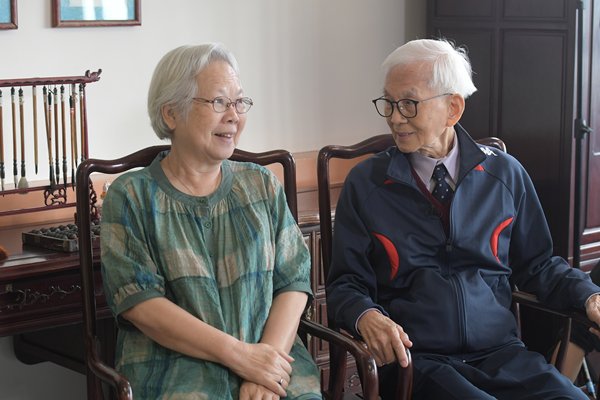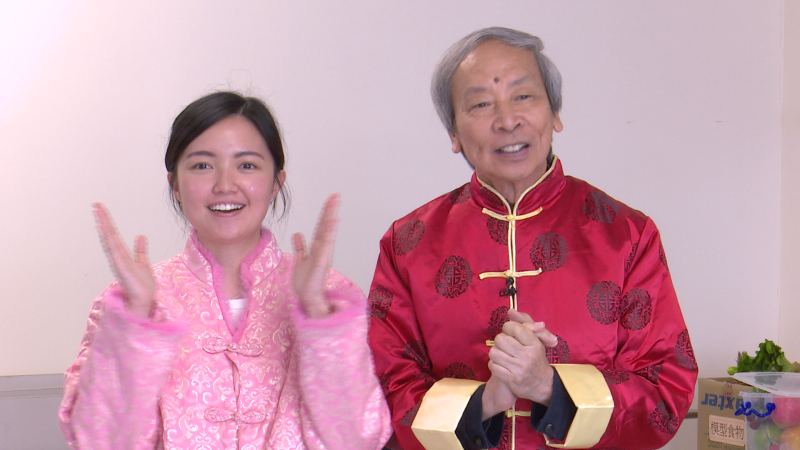Drama therapy takes on dementia
Drama is a powerful tool. Not only can it entertain the masses, but it can also be used to treat elderly patients with dementia or mood disorders.
The Kwai Chung Hospital Drama Group teamed up with the hospital’s Psychogeriatric Day Care Centre last year to co-ordinate drama workshops for such patients.
In one of the dramas produced, elderly actors played members of two families clashing over the planning of a wedding.
They bickered over the appropriate amount of wedding gift cash and who should take care of the couple’s babies.
Positive outlook
Working behind the scenes to inspire the elderly to act is Kwai Chung Hospital Drama Group Leader Oliver So.
“The script is designed to be simple. Because some elderly people are less mobile, there is not much physical action throughout the script. They simply sit down and perform,” said Mr So, who is also the hospital’s Advanced Practice Nurse (Psychiatric).
Knowing that recreational acting achieves therapeutic relief, Mr So insists drama therapy is a win-win project for seniors. In addition to increasing their mental acuity and bolstering their self-esteem, it helps them to accept their ageing limitations.
Mind stimulation
The play, entitled Family Portrait, was successfully staged at Lai King Community Hall last December.
Acting as the bride’s relative in the drama was 89-year-old Kong Kan-chuen. He was diagnosed with cognitive impairment four years ago.
“Acting helps me to remember things. I have to memorise the storyline and flow of the script, otherwise I risk saying something irrelevant,” said Mr Kong.
“Above all, I can chat with many people and this makes me less lonely.”
Mr Kong’s performance impressed his wife Leung Kar-ying who said: “When I saw my husband performing on stage, I was surprised to see he could remember his lines and his dialogue made sense throughout the drama.”
Seventy-year-old Lam Kwok-leung was the leading actor who played the groom. He was diagnosed with mood disorder in 2017.
“At that time, I had insomnia and it affected my emotions. I became pessimistic.
“I think drama therapy works. After receiving this therapy, I have become different and more optimistic. Together with psychotherapy and exercise, my mood has improved a lot.”
Behind the scenes
The Kwai Chung Hospital Drama Group Leader Oliver So was diagnosed with nasopharyngeal cancer in 1995 once he graduated and became a nurse.
This experience led him to form the drama group in 2001 with the goal of encouraging improved mental healthcare and the spirit of anti-discrimination.
“The treatment process of my cancer was very hard, making me understand that patients need a lot of courage to face serious diseases.
“After rehabilitation, I officially became a nurse. I started thinking about different ways to help mentally ill patients to adapt to and face the changes brought to their lives by their illnesses.”
Mr So said encouraging dementia patients to think more is beneficial to them and that is why he came up with the idea to organise drama activities and write scripts for elders to act out.
He makes use of the characters and storyline, and chooses an environment they are familiar with to help them recall their memories.
This year, the hospital established the Happy Drama Group, an elderly drama troupe, with the goal of putting on one large performance every year.
Mr So is taking that idea one step further. He plans to introduce musical elements into the upcoming dramas or transform the shows into musicals.
“Going on stage to perform is not easy for the elderly. They put in so much effort because they want to prove to others that seniors can have meaningful lives and continue learning to enrich themselves.”
Early treatment
People should pay close attention to elderly relatives who may be showing signs of dementia, including short-term memory loss, trouble communicating, as well as confusion about who and where they are.
Kwai Chung Hospital Community Psychogeriatric Team & Day Care Centre Ward Manager (Psychiatric) Chung Lai-kwan advised people to seek treatment as soon as possible if seniors begin to show these symptoms.
“As dementia patients begin feeling incapable with their memory and become disoriented in time and place, their emotions fluctuate and they may become distressed when they forget things.
“Elderly patients with mood problems may also not be willing to express themselves.
“Through drama, they can play different roles and express their deepest emotions. Regaining the expression of emotions is equally beneficial to elderly patients with depression.”
